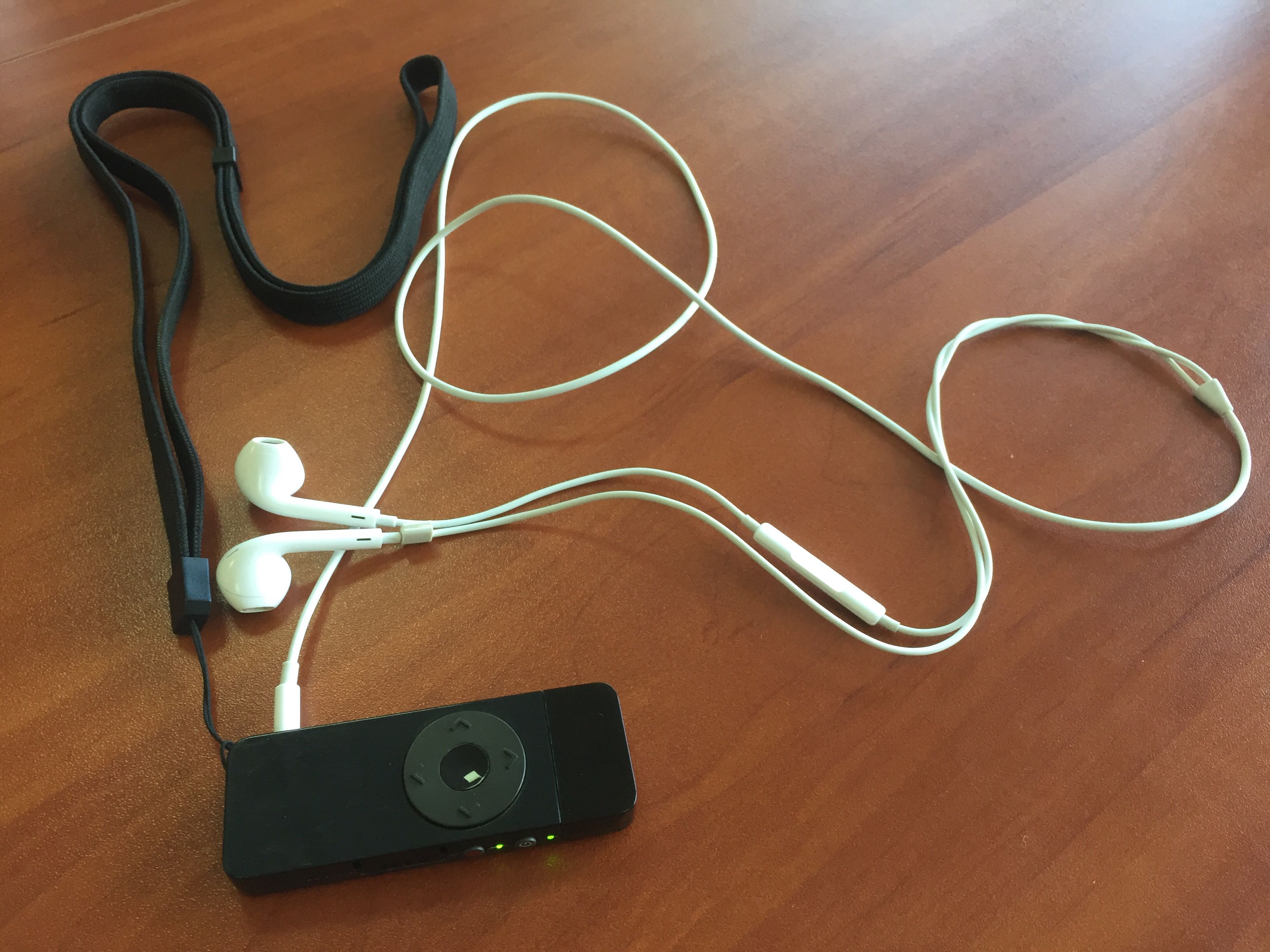Always make sure to follow all the steps for the Standalone live streaming setup (with an iOS or Android mobile device).
This article covers two options to hear your distant participants, some FAQs, Tips and Best Practices .
1. Headset with a microphone
The person using Swivl robot can hear a remote person’s voice by connecting a headset to the primary marker for one on one conversations
(through the right earbud only).
In some cases AirPods may be supported, however we recommend using jack connector headset or headphones to ensure best audio reliability as after switching to Zoom app, Swivl Capture app fully transfers audio control to the live streaming app.

2. Speakers
The person using Swivl robot can hear a remote person’s voice by connecting speakers and the adaptor into the USB port on your Swivl robot - see Recommendations for Add-on Accessories and Hardware.
We recommend using AC powered speakers:
In this case you will need to connect your speakers to the adaptor and the adaptor will be plugged into the Swivl robot.
The speakers will be powered from the wall outlet.
You can also use USB-powered speakers:
In this case you will need to connect your speakers to the adaptor and the adaptor will be plugged into the Swivl robot.
The speakers must not be connected to the same AC adaptor as the Swivl robot to avoid speakers output interference.
Volume controls:
- Use the Up/Down arrows on the primary marker to control the speaker volume.
- If you need to increase/decrease your own voice as you speak into the marker, go to
- Swivl Capture App=> Robot Tab
- Tap on the color of the marker you want to adjust
- Move the slider Right/Left to increase or decrease the level
Here is an article that explains more about how to adjust marker sensitivity.
Troubleshooting
If you have any issues hearing your distant participants using the speakers connected to the base, do the following:
1. Open Swivl Capture app > Settings> Base Port Configuration > Automatic or To Speakers.
2. Check Swivl Capture app Settings > Advanced Settings > Audio Configuration> Live Streaming.
Tips and Best Practices for Remote Student Audio
Remote students can learn and follow best practices for participating in live streamed meetings. Following these guidelines will increase the clarity and volume of remote voices while live streaming.
- Use headphones or earbuds with a microphone. This will make your voice louder and clearer while live streaming.
- Mute yourself when you are not speaking to the teacher.
- Join the call from a quiet location. Limit extra background noise and distractions during your meeting.
- If you are not able to use a headset with a microphone, sit directly in front of the computer to ensure that your teacher can hear you.
Comments
0 comments
Please sign in to leave a comment.